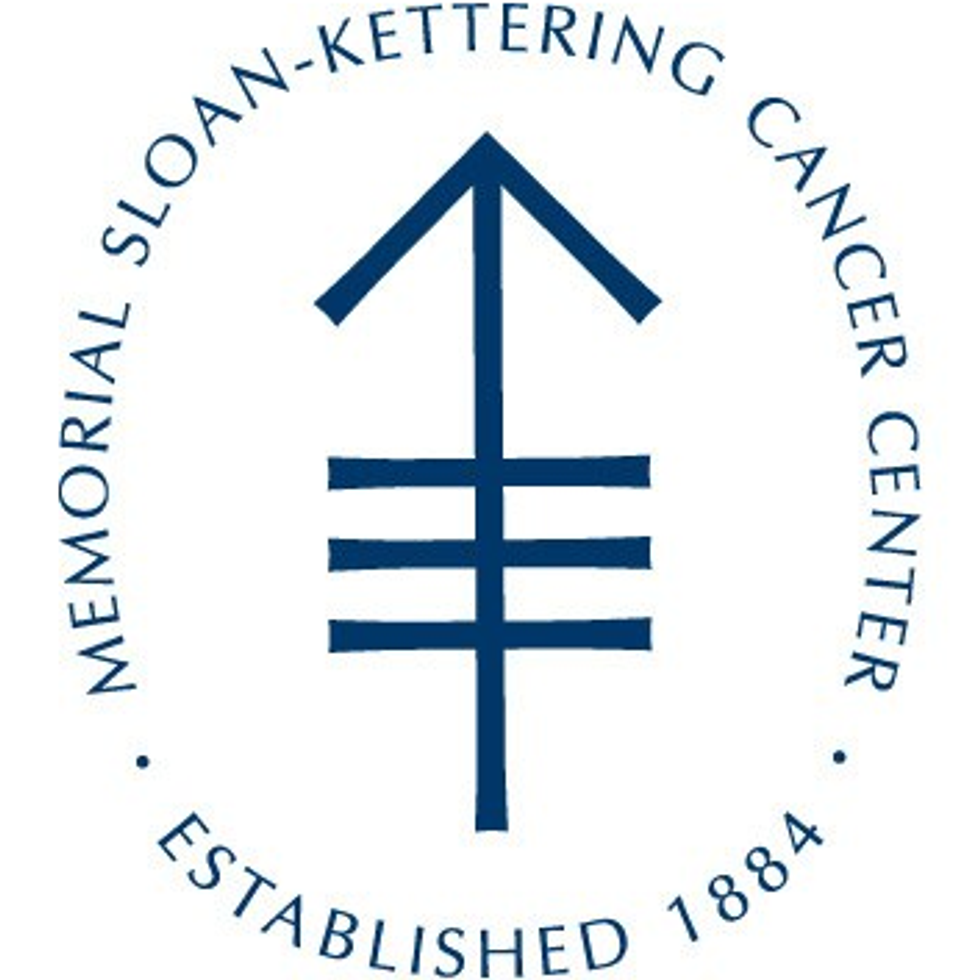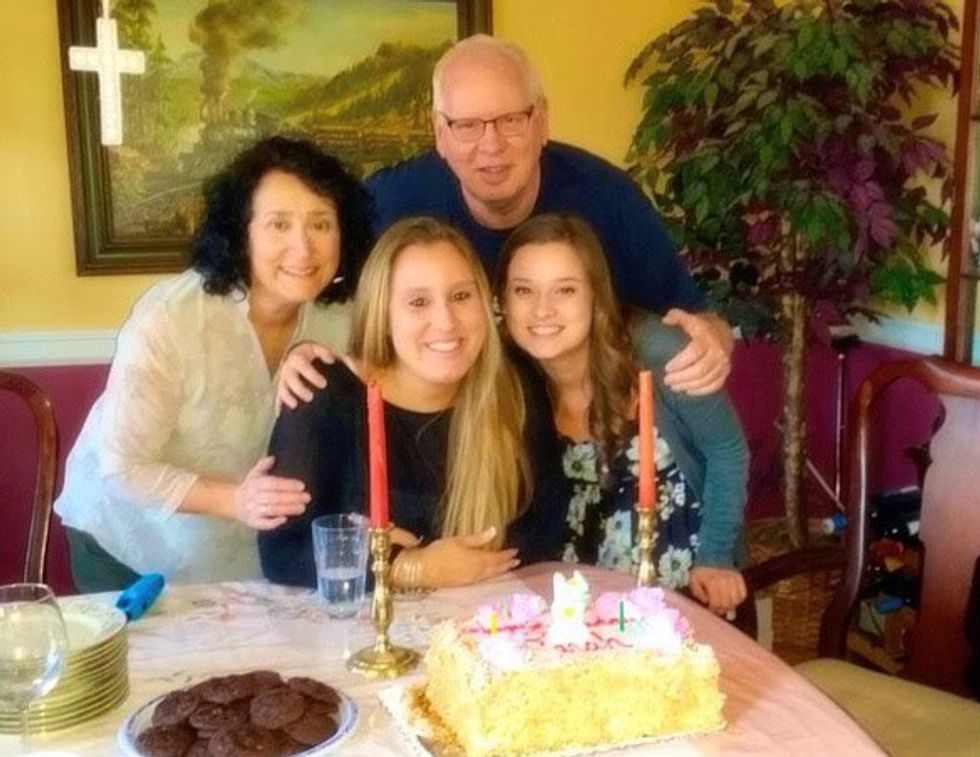It was the 10th of July on one of the hottest days of the year. I had been swimming in the pool with my sister, as my mom and dad bathed in the sun on the patio. Everything was perfect. With not a cloud in the sky, I could smell the sunscreen, bug spray, and chlorine filling my senses. This scene was like one from a movie.
Once the sun began to set, there were dark clouds and streaks of light in the distance. The sudden turn in the weather foreshadowed what was about to happen. With the first boom of thunder, I saw my mom run inside to the sound of a phone call. With worry in her eyes, she answered the phone. I watched her converse through the back sliding glass door. The phone dropped to the ground as my mom burst into tears. My dad ran inside to console her. The closeness and love of my parents was felt in this moment.
My mom had never wanted her children to see her vulnerable. It wasn't normal to see her cry. I was only used to smiles. When my sister and I asked what happened, my parents told us not to worry and get ready for dinner. We got in the car after showering and freshening up. The ride was quiet. I could feel something wasn't right. The original sunny, cheery, and happy scene was now gloomy, melancholy, and depressing.
Once seated and ready to dine, my parents told us the news. One morning when our dear friends slept over our house to celebrate the 4th of July, my mom felt a lump in her breast. She immediately went to the doctor. An ultra sound and a biopsy were performed. The doctor notified her that it was suspicious. Over the phone, she got the results that it was breast cancer. My sister and I didn't receive this information. Fighting back tears, all my mom could say was: "Girls, mommy is sick. But, I will be okay. This too shall pass."

She had endless doctor visits that consisted of heart tests, MRI’s, blood tests, cat scans, surgeon visits, oncologist visits — any type of test or meeting, you name it, she had. This was stressful for her because her routine was messed up. Her life and ours were put on hold and turned upside for about six months.
My mom continued to have a positive attitude. She looked at this as a job. It was something she had to wake up and do. She knew she had to take care of this, just like she’d have to take care of anything else. She always thought about how young my sister and I were, and how she needed to be okay for us.
August was surgery. She was waiting for one of the surgeries when she noticed another woman in the waiting room who was bitter, miserable and much older. That other woman’s husband pulled my Dad aside and said, “I wish you could have your wife talk to mine. She needs that positivity." My Mom did. This small act helped another person.
She explains surgery as “horrible and painful.” Her surgery lasted three hours. She had surgery to remove the lump and also reconstruction for a fake breast. When she woke up from the surgery, she explains this as “feeling like I’ve been hit by a freight train.” She was also very nauseous from the anesthesia.
I remember visiting my mom after her surgery. My sister knew something wasn’t right when we were walking through the hospital halls that said “cancer.” Once walking into the room where my mother was resting, she immediately sprung up and didn’t want us to see her like that. She didn’t want to upset us.
My sister and I were in New York with our aunt. This is why we had the opportunity to visit our mom. She lives in Staten Island and had taken care of us for days at a time. She’d reassure us that everything would be okay and she continually would take our minds off the situation. Our family is strong and connected. We were grateful to have the support, especially at this time of need.
Recovery was rough. This illness affected more than just her. When she was finally home, my Dad took on both parent roles. He cooked dinners, helped clean, took care of us and did so much for the entire family. My mom said she couldn’t have done it without the support of her family. Her doctor told her there is a correlation between getting better and family support.
Just when you think the worst is over, it isn't. My mom has only conquered half of this terrible illness. She now had chemotherapy. When asked about it, she responds: “Oh God … chemo was terrible.” She had to be at the hospital for a minimum of three hours each time. For the anticipated side effects, she was responsible for taking medicine before she went. Chemotherapy was like having the flu every single day, she said. Whenever she started to feel really good and better, she would have to go in for another treatment.
The worst part of this process was losing her hair. First, she would start to see clumps of hair falling out in the shower. She would cry. She said she wouldn’t wish this on anyone. There came a point where she just had to shave her head. It was sad and depressing. Our family friend who happened to be a hairdresser came over, took my mom upstairs, and got rid of another thing the cancer was taking from her. My mom was concerned it would never grow back. Hair is a security blanket for women. She felt like she was losing part of her womanhood. She said she didn’t look or feel feminine anymore.
There were moments she thought she would die, but she wouldn’t and couldn’t let herself think like that. She needed to live for her kids and her family. She went to church by herself sometimes. She knew God and her Mother were watching over her during this terrible time.
Once the chemotherapy was over, she started to feel better. When her hair started to grow back, she felt more like herself. She still had to visit the doctor often. Her main concern now was that she didn’t want it to come back. After five years, she could breathe a sigh of relief for the first time, knowing she was cancer-free and it was finally behind her. She was grateful she didn’t have any setbacks. Everything went according to plan.
She says that cancer can happen to anyone, even if you think you are completely healthy. "Cancer doesn’t discriminate." It doesn’t care if you’re 38 or 48 with kids and a family.
I think surviving cancer is a miracle. My mother said family support is the most important factor that contributed to her recovery.
Today, the family unit is falling apart. 45-50 percent of first marriages end in divorce. This affects children the most, according to a research conducted by Dr. Robert Emery. He conducted a study on divorce and the effect it has on children. He found that divorce increases a child's chance of suffering from psychological or behavioral problems. Not only this, it creates "painful memories and ongoing worries." This has an effect on the normal family structure and part of the reason why it is dying in America.
Dr. William H. Doherty, marriage scholar and therapist, outlines the greatest causes of divorce in America. He outlines the risks for divorce: "marrying at a young age, less education and lower income, living together before marriage, a premarital pregnancy, no religious affiliation, coming from a divorced family, and feelings of insecurity." The number one reason Doherty explains as the reason for divorce is the lack of commitment. If the only reason for commitment is constraint, the marriage will not work out. Personal commitment is essential to a healthy marriage, not just pressure from relatives or financial worries. These pressures aren't enough to keep individuals together. When there is dedication, the relationship is likely to succeed. Doherty says, "When commitment seems to be fading, it can be helpful to remember the good times in the relationship and to talk about your dreams for the future together."
How to fix this: consider the risks of divorce. Marriage is the first step to having a family. It is crucial to make smart decisions from the start. Millennials need to be aware of the consequences of an unhealthy marriage. This affects more than just them when children come into the picture. Don't take any short-cuts. You have your whole life to figure it out. Don't rush. Focus on yourself and your happiness at first. After all, you have to love yourself before loving anyone else. Then when someone comes into the picture, make sure it is right.
My mother couldn’t have survived this tragic illness without the love and support of family. It is clear how important family is. I think the family structure is the heart of America. It is falling apart, and we need to get this structure back!
The Cruser Family














































